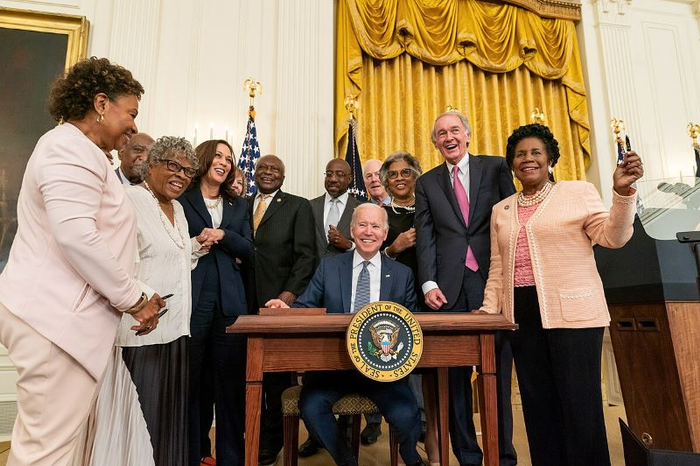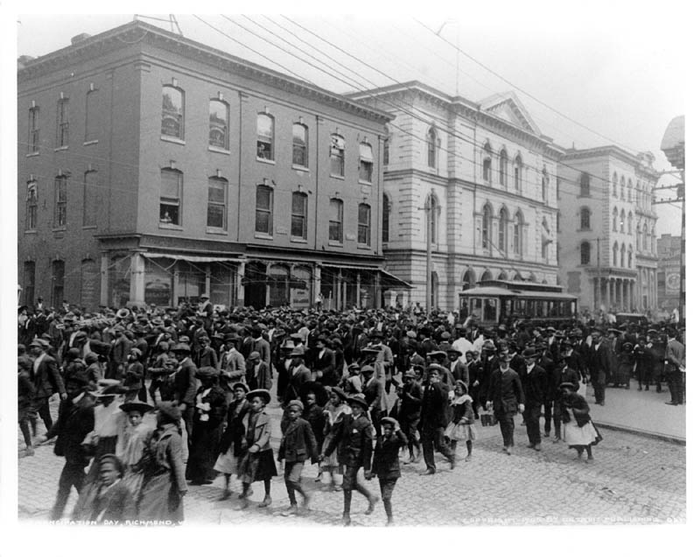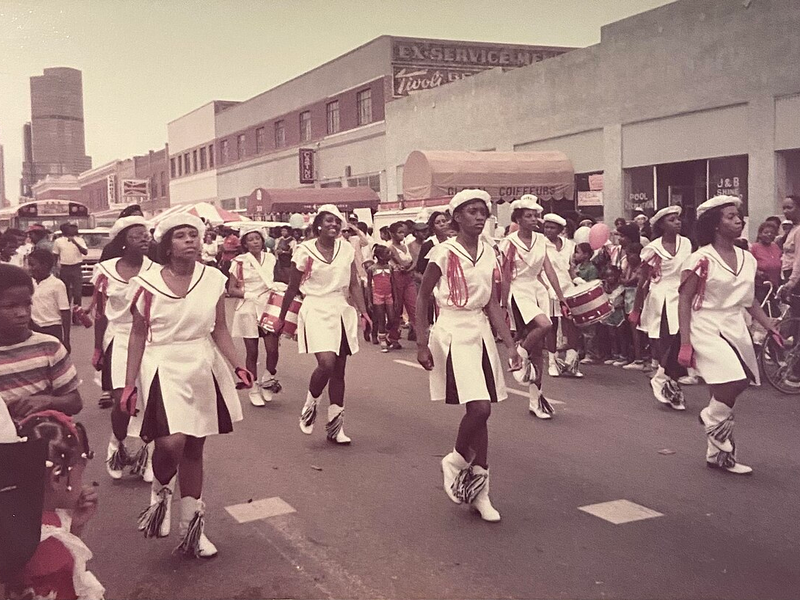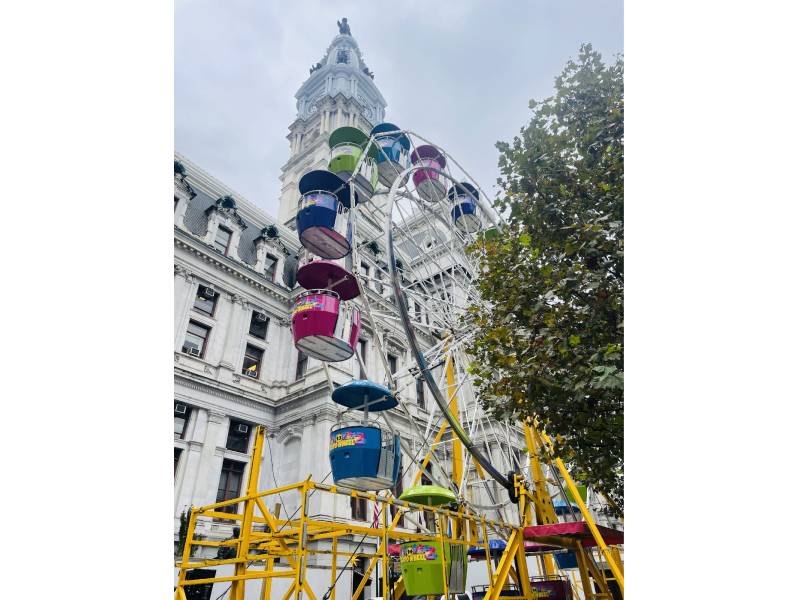A Juneteenth parade in Denver, CO in the 1980s. Newestf, CC BY-SA 4.0, via Wikimedia Commons
Following the emancipation proclamation by the 16th President of the United States of America, President Abraham Lincoln on Jan 1, 1863, declaring freedom and the end of slavery for Black people, for about 250,000 Blacks around Texas and Oklahoma, especially in places like Galveston, Texas, many were yet to experience freedom and for 2 years continued to remain subjugated and enslaved.
With the arrival of Gen. Gordon Granger in Galveston on June 19, 1865, and the announcement of the emancipation decree already in existence, it finally brought to a close the official end to slavery all across the United States. This remarkable event came to be recognized as Juneteenth, taking its name from the merging of June and the historic date of the Nineteenth.

The people (of Texas) are informed that, in accordance with a proclamation from the Executive of the United States, all slaves are free’ — General Gordon Granger, The Galveston Daily News (June 21, 1865) Public Domain
Juneteenth had been widely celebrated as a time to recognize the sacrifices of the many Black men and women who had fought and died for freedom from slavery, whether it was through the efforts of the Underground Railroad movement or the civil rights movement after the war, the day is commonly set aside to recognize the contributions and the cost many had to pay for freedom.
On June 17, 2021, President Biden officially signed the bill setting aside this historic date as a Federal holiday in the United States of America. As an officially recognized holiday, the day is marked with events such as performances, historical and educational reviews, parades, and other forms of events that educate and inform on the importance of that day and how far Blacks living in the United States have come in the fight against slavery and racism.

President Joe Biden, with Vice President Kamala Harris and lawmakers signing the Juneteenth National Independence Day Act Bill on Thursday, June 17, 2021. The White House, Public domain, via Wikimedia Commons
Sharing a similarity with Black History Month, where the contributions of African Americans to the history of the United States are recognized and celebrated, Juneteenth offers an opportunity to review the historical journey of African Americans from slavery to the success of Black History Month.
No matter the field of endeavor, whether it be in politics, music, literature, arts, or sciences, the history of the United States cannot be written without the contributions of the many Black people who constitute a percentage of their population.
One of the ways Juneteenth can be leveraged to honor Black history is through programs and events targeted at educating the next generation about the experiences and contributions of Blacks to the history of the United States. Programs, seminars, and school plays that provide accurate representations of the history and culture of Blacks can be made available in schools, cultural centers, and museums for all who might be interested in learning more about this important day.
Books that also deal with Black culture and history can also be incorporated into the curriculum of historically Black colleges and this can go a long way to provide insights into the Black man’s experience.

Emancipation Day celebration in Richmond, Virginia, ca. 1905. Public Domain
Juneteenth can also afford the opportunity for the celebration of Black culture. Whether it be in music, fashion, and art, Black culture has evolved from the period of slavery up to the modern-day and the day offers a great opportunity to showcase this great cultural transformation through festivals, carnivals, and other events that bring to full display the rich history of Blacks in America.
Another way to leverage this day to honor Black history is to give back to the community by supporting organizations that are deeply involved in promoting racial equality or are actively involved in assisting Black families or homes that are struggling. Volunteer and charitable organizations currently involved in making an impact, especially in Black communities are a good place to also start.
Juneteenth holiday continually reminds us of the long road that Blacks in the United States have had to travel from slavery to freedom and how much these life experiences have helped shape their cultural evolution. It is not only an avenue to revise history, it is also an opportunity to celebrate the resilience, courage, and determination of the forebears and to ensure these values are imbibed for generations to come.

Okechukwu Nzeribe works with the Onitsha Chamber of Commerce, in Anambra State, Nigeria, and loves unveiling the richness of African cultures. nextquestservices@gmail.com





